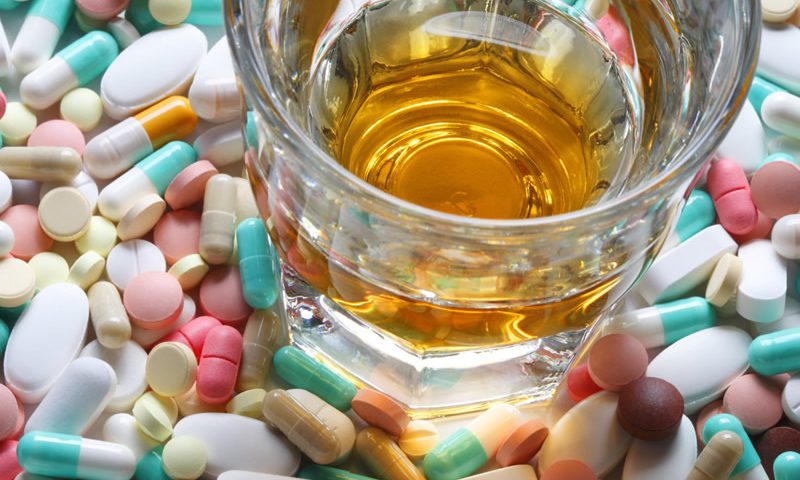- Need Help? Then Contact Us.
- +23320 253 2498
- +23320 222 5005
- info@equity-pharmacy.com
Mixing Alcohol With Medication Can Have Deadly Consequences

Antibiotics: Misuse Puts You & Others at Risk
October 19, 2016Earn to do stretching exercises when you wake up. It boosts circulation and digestion, and eases back pain.
January 12, 2017
If you’re like many people, you probably don’t give much thought to what you eat or drink when you’re taking medication. But you should. After all, just as some foods can have dangerous interactions with certain drugs — drinking grapefruit juice when taking a statin is a notoriously risky example — alcoholic beverages can do the same thing with some medications. Yet many people don’t think twice about consuming alcohol while taking prescription medications: In a recent study involving 26,657 adults, researchers from the National Institutes of Health found that 43% of all current drinkers take medications that could interact with booze, and 78% of people 65 and older do.
“This is a big issue and a lot of people aren’t aware of it,” says Jack Fincham, PhD, RPh, a professor of pharmaceutical and administrative sciences in the School of Pharmacy at Presbyterian College in Clinton, South Carolina. Others may be vaguely aware of the risks but assume they won’t have a dangerous interaction. The problem is that the way a particular medicine works can be altered when it’s combined with alcohol.
Here’s a look at some of the most problematic drug-alcohol interactions:
The drug: Antihistamines, taken to treat allergies or cold symptoms
What can happen?: Consuming alcohol can exacerbate the drowsiness caused by these drugs, which can lead to falls and accidents and impair your ability to operate machinery (including automobiles). It’s best to steer clear of alcohol while you’re taking one of these drugs.
The drug: Acetaminophen, used to treat headaches, muscle aches, arthritis and back pain, and to reduce fever.
What can happen?: If you have three or more alcoholic beverages on a daily basis and you take acetaminophen, you can suffer severe liver damage and kidney damage, Fincham warns.
The drugs: Nonsteroidal anti-inflammatories (NSAIDs) like ibuprofen, naproxen and aspirin, taken to reduce pain, inflammation and fever.
What can happen?: If you drink three or more alcoholic beverages a day and you take one of these drugs, your risk of experiencing bleeding in the stomach increases considerably. In fact, a study from Boston University School of Medicine found that the incidence of upper gastrointestinal bleeding was highest among those were both heavy drinkers and regular users of ibuprofen or aspirin.
The drugs: Narcotic analgesics (like codeine and morphine), used to treat moderate to severe pain.
What can happen?: Drinking alcohol while taking one of these drugs can lead to dangerous side effects, including coma or death.
The drug: Muscle relaxants such as carisoprodol, cyclobenzaprine and baclofen, used to treat back pain and various muscle spasms.
What can happen?: When taken with alcohol, these drugs may produce a worrisome reaction that includes extreme weakness, dizziness, agitation and confusion, according to research from Purdue University.
The drugs: Bronchodilators that contain theophylline, used to treat asthma, bronchitis, and chronic obstructive pulmonary disorder (COPD)
What can happen?: Consuming alcohol can increase the chances of side effects like nausea, vomiting, headache and irritability.
The drugs: Benzodiazepines like clonazepam, lorazepam and alprazolam, used to treat anxiety and panic disorders
What can happen?: These medications can have a sedating effect and alcohol can magnify these effects in a dangerous way. A study in the Canadian Journal of Public Health found that people are much more likely to drive unsafely if they are under the influence of benzodiazepines and alcohol than if they consume only alcohol. Both alcohol and benzodiazepines can also lower heart rate and respiration in a perilous fashion.
The drugs: MAO inhibitors like phenelzine and tranylcypromine, used to treat depression.
What can happen?: When these drugs are taken in the presence of red wine (which contains tyramine), a severe increase in blood pressure can occur, leading to a hypertensive crisis, Fincham says.
The drugs: Antifungal medications (such as griseofulvin), used to treat fungal infections
What can happen?: Drinking alcohol while you’re taking griseofulvin “can cause flushing, rapid heart rate, and increase the risk of liver damage,” Fincham says.
The drugs: Metronidazole antibiotics, used to treat bacterial infections
What can happen?: The combination of booze and metronidazole can cause nausea, stomach cramps, vomiting, flushing and headaches. Avoid alcohol while you’re taking these drugs and for at least one full day after you’ve finished the medicine.
Source:

